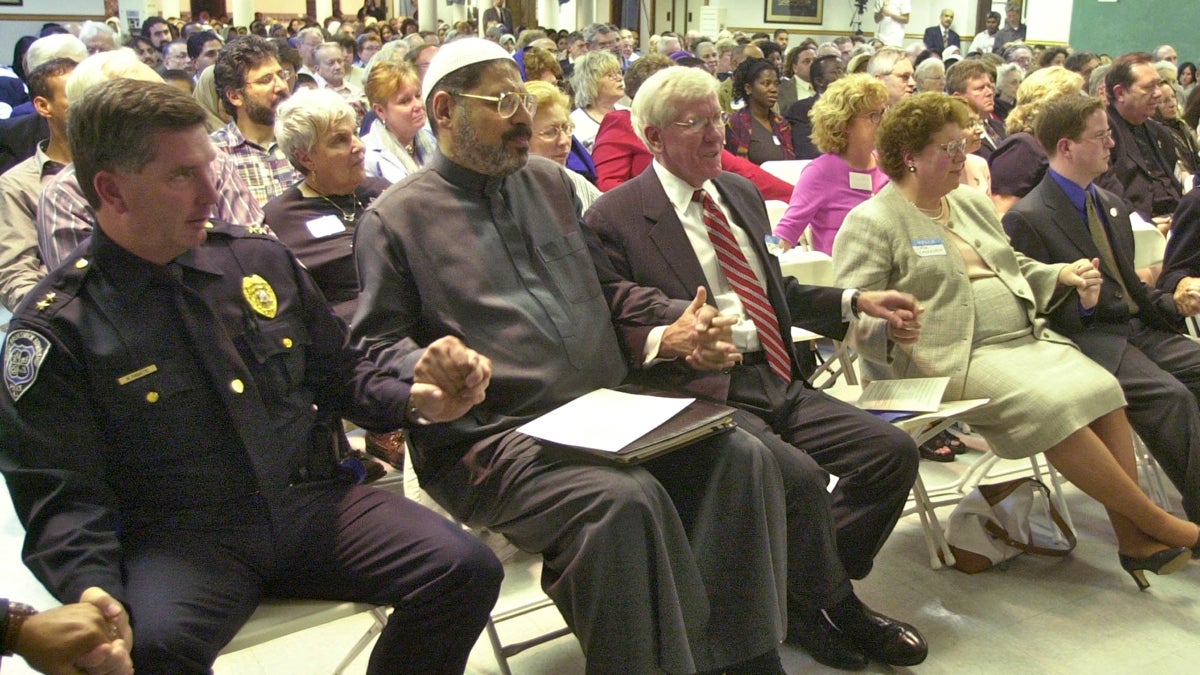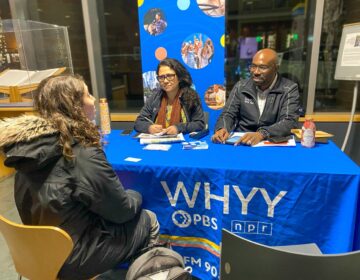WIth the rise of lone-wolf attacks, N.J. aims to catch terrorists before they become radicalized
Listen
Imam Hamad Ahmad Chebli (second from left)
As more homegrown terrorists commit acts of violence such as Sunday’s shooting at a nightclub in Orlando, New Jersey is doubling down on its effort to combat radicalization of any kind within the state’s borders.
After 9/11, New Jersey formed the Interfaith Advisory Council, which brought together faith-based leaders and law enforcement officials to engage with the Muslim community about radical extremism.
Now, as more homegrown terrorists commit acts of violence on the scale of Sunday’s shooting at a nightclub in Orlando, in which 50 people including the shooter were killed and another 53 were wounded, New Jersey is doubling down on its effort to combat radicalization of any kind within the state’s borders.
“Homeland security has become hometown security nowadays,” said Chris Rodriguez, director of the state Office of Homeland Security and Preparedness. “One of our primary focuses has been on community-based relationships.”
The Interfaith Advisory Council has grown since 9/11 to include Jewish, Sikh, and Christian leaders as well. In addition to other services, it offers training for faith-based leaders in how to identify and report suspicious behavior of individuals who may be at risk of radicalization.
Without mentioning details, Rodriguez said the group had provided several promising leads to law enforcement in the past.
But New Jersey is taking its fight against radicalization one step further. By the end of the year, and with the help of the Federal Bureau of Investigation, the state will begin deploying “shared responsibility committees” intended to root out individuals on the cusp of radicalization and bring them to the attention of law enforcement.
These groups will include not only faith-based leaders and law enforcement officers but also a slew of other to-be-determined community members apparently well placed to spot the seeds of radicalization before they sprout.
“It has to go beyond faith-based leaders,” said Carla Lewandowski, a professor of law and justice studies at Rowan University.
For example, “if we know that most of them are mostly young men, then [that means] targeting even students who would recognize it in their own friends, recognize it in their social media,” said Lewandowski, “because they aren’t necessarily quiet about their beliefs.”
Critics contend the groups would force local leaders to betray the trust of their communities and bring about unsubstantiated accusations.
Imam Hamad Ahmad Chebli, who leads the Islamic Society of Central Jersey, said he has had a strong relationship with law enforcement when it came to identifying behavior that could indicate radicalization. But Chebli added that the burden of uncovering radical individuals cannot fall entirely on a Muslim community that is overwhelmingly well-meaning.
“I believe the government has the right to protect you, and that is your right to be protected,” said Chebli. “For Muslims to be in charge for any bad apple in the box — really, we are not.”
Born to Afghan parents in New York, Orlando shooter Omar Mateen pledged his allegiance to ISIS before perpetrating Sunday’s attack.
Mateen regularly attended prayer services at a nearby mosque and twice was interviewed by the FBI. The security guard, who had no criminal record, legally bought at least two guns within the last several weeks, according to an official with the Bureau of Alcohol Tobacco and Firearms.
Gov. Chris Christie said Monday that New Jersey and the country is at war with radicalized Islamic terrorism.
The Associated Press contributed to this story.
WHYY is your source for fact-based, in-depth journalism and information. As a nonprofit organization, we rely on financial support from readers like you. Please give today.




